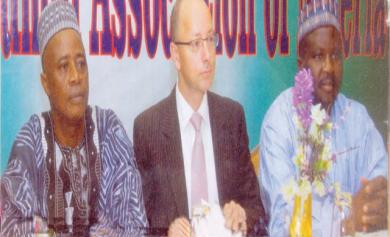
President Goodluck Jonathan and other leaders who are meeting in Perth, Australia for the Commonwealth Heads of Government Meeting (CHOGM) have agreed to a series of reforms to strengthen the Commonwealth Ministerial Action Group (CMAG) in dealing with persistent violations of Commonwealth political values.
Outcomes from the report, titled, ‘Strengthening the Role of the Commonwealth Ministerial Action Group’ were released yesterday.
It follows two years of deliberations by CMAG, which was mandated in 2009 by heads of government in Trinidad and Tobago to consider ways of effectively addressing the full range of violations.
“CMAG noted the widely shared view that it had hitherto been too reactive and not sufficiently proactive,” it said.
Core changes include clearer guidelines and time frames for engagement with agreed indicators as to the types of situations and developments that might be regarded as constituting a serious or persistent violation of Commonwealth values.
The Commonwealth leaders also agreed that the secretary-general will speak out publicly in expression of collective disapproval of serious or persistent violations and that CMAG will be the custodian of the 2009 Affirmation of Commonwealth Values and Principles.
The Commonwealth Ministerial Action Group (CMAG) was established by heads of government in 1995 as a mechanism to deal with serious or persistent violations of Commonwealth political values.
CMAG’s role is to assess the nature of such infringements, and to make use of a series of measures in response to serious or persistent violations that were identified by Commonwealth leaders in 1995 in their Millbrook Action Programme.
Meanwhile, HM Queen Elizabeth II, at the opening of the three-day event confirmed that the Commonwealth Heads of Government Meeting (CHOGM)? would bring new vibrancy to the association.
The queen said the summit meeting of Commonwealth leaders was taking place in a venue that embraces much of the Commonwealth spirit.
“We find ourselves confronting new and fresh challenges: insecurity and uncertainty in finance, food supply, climate change, trade and development. The Commonwealth meeting is, for its part, the perfect opportunity to address these issues and find responses to today’s crises and challenges,” said the queen.
She urged Commonwealth leaders in their discussions to agree on further reforms that respond boldly to the aspirations of today to keep the Commonwealth “fresh and fit for tomorrow.”
“In these deliberations, we should not forget that this is an association, not only of governments but also of peoples. This is what makes it so relevant in this age of global information and communication,” she added.


